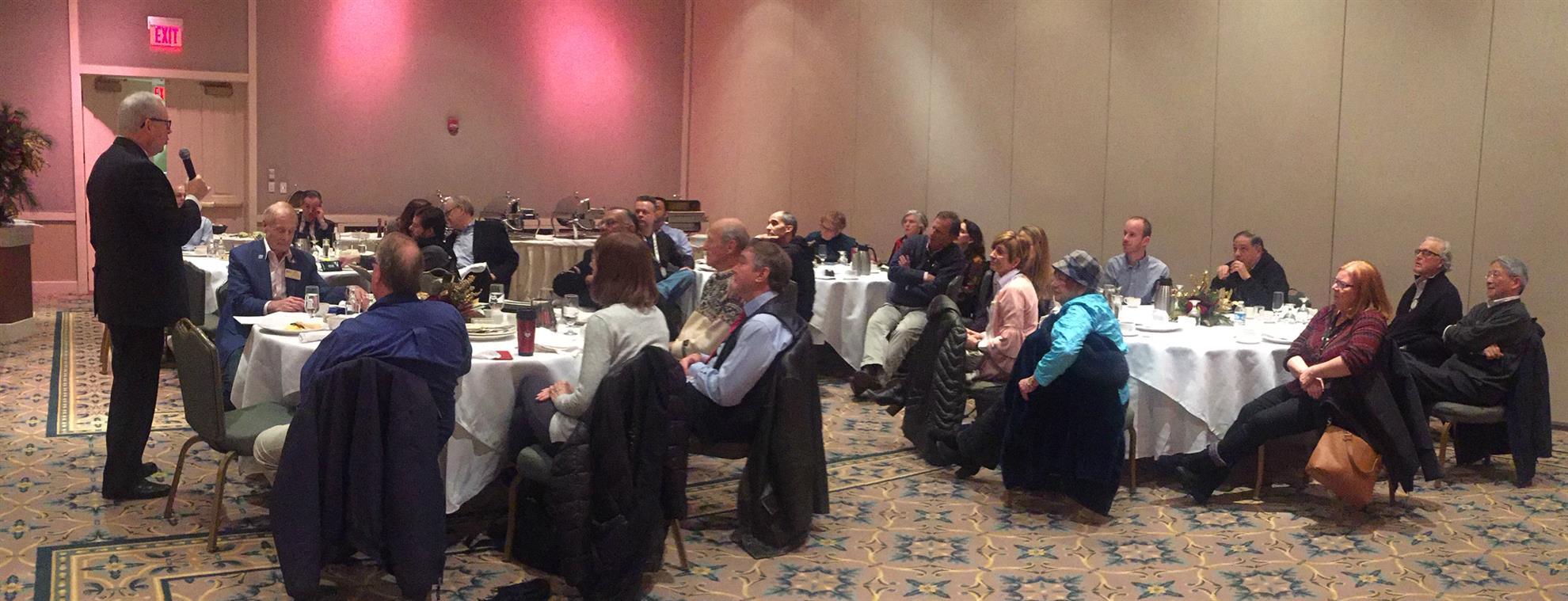Judge Curry speeks to our Club

Judge John Curry introduced himself with an overview of the Circuit Court of Cook County structure emphasizing that ALL cases begin at the circuit court level, and the Cook County Circuit Court system with 400 judges is the largest in the US. There are nine divisions of the court, separated into specialties. Judge Curry is part of the Chancery division hearing cases related to law equity, real estate, and foreclosures where there is not a jury deciding the cases. More can be seen about the circuit court on the website: http://cookcountycourt.org
Judge Curry continued to highlight some encouraging developments in the court system; some challenging developments; and, some concerning developments.
ENCOURAGING
The requirement for a system wide e-file process that allows the circuit court clerk to assist even those without access to an input mechanism.
Bond reform for those nonviolent offenders that specifically cannot afford bail. This has allowed a 15% decrease in jail population where 9 of 10 of these individuals are not seen as a danger to society or likely to commit another crime.
Specialty courts have been organized specifically to address drug treatment options, mental health treatment options, prostitution elimination, and veterans’ PTSD treatment. Most recently an experiment is underway with a Restorative Justice court focused on community and activist coordination to minimize gang involvement. Ideally there is a joint agreement to work with the offender and positively impact the individual as well as the disadvantaged community.
CHALLENGING
Budgetary reductions limit what is possible.
As the cost of litigation continues to increase, more and more people are seen in circuit court unrepresented with no knowledge of how the court system or court proceedings work. Judges are allowed to give some direction to the defendant, but it is not the same as being represented by a lawyer.
CONCERNING
Judges are elected for an initial 6-year term on a 1st time partisan ballot and after that time they come up for a retention, non-partisan vote where a 60% vote is required to retain. They can be retained for life. If voters do not thoroughly educate themselves on the background and history of the individual judges up for retention, there is a likelihood that the “best man/woman” may not win. The solution to this is a set term limit for ALL judges, including the Supreme Court.